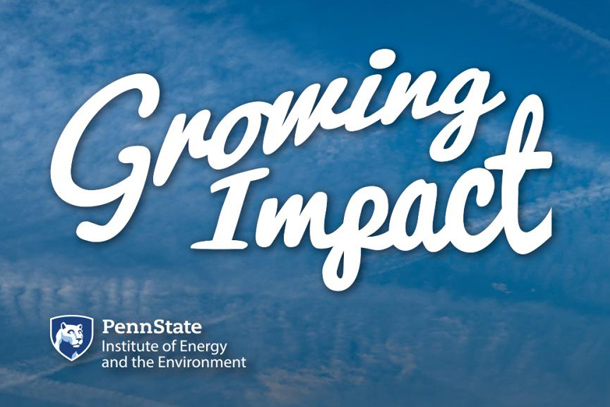
The latest episode of "Growing Impact" features a team of researchers that is exploring how to mitigate aviation’s climate impacts, specifically the warming effect created by contrails. Credit: Brenna Buck
Aerospace engineering professor discusses mitigating the climate impact of contrails
December 1, 2023
Editor’s note: This article first appeared on Penn State News.
UNIVERSITY PARK, Pa. — The latest episode of "Growing Impact" features a team of researchers that is exploring how to mitigate aviation’s climate impacts, specifically the warming effect created by contrails. As the number of airline passengers is anticipated to grow significantly in the coming years, there is a concern about the increasing impact of contrails on climate change, said Sven Schmitz, the Boeing/A. D. Welliver Professor of Aerospace Engineering.
“You can broadly categorize aviation's climate impact into CO2 (carbon dioxide) and non-CO2,” said Schmitz. “The CO2 climate impact is driven by fuel burn. The primary non-CO2 effect is contrails, which is warming caused by the creation of artificial cirrus clouds. This impact is one that many in the public may not be aware of.”
Contrails are the cloud-like streaks left in the sky by jets and are the effect of water vapor condensing around soot and dust in the atmosphere, Schmitz explained. Their behavior mimic cirrus clouds, including their proclivity to allow solar radiation to reach the Earth’s surface and trap that energy once it has entered the atmosphere.
“Model studies and observational studies have suggested that, if climate change involves increases in upper-level, cirrus clouds, that has the potential to amplify greenhouse gas warming,” said Andrew Carleton, professor emeritus of geography. “It makes it worse by letting solar radiation pass through during the daytime, but also having the heat-trapping effect.”
The team’s project looks to produce data on contrail formation in the jet engine exhausts of current and anticipated future-concept aircraft. The team also hopes to use satellite imagery to predict the impact of contrails.
“Now that we know how we can detect clouds, we need to think about how we can build a system that can do this at scale, basically over the entire planet every few minutes,” said Guido Cervone, professor of geography. “Additionally, how can we link the environmental data that are detected from airplanes with the formation or not of contrails that we detect from satellites?”
Finally, the team is interested in generating new engine and aircraft concepts and conducting life-cycle analyses of the potential impact of future aviation technologies towards more sustainable and energy-efficient aviation.
"The aviation industry is producing solutions,” said Burcu Ozden, assistant professor at Penn State Abington. “This might be a new fuel or new engines that might reduce contrails, but there has not been a study or investigation on the sustainability of these solutions.”
"Growing Impact" is a podcast by the Institute of Energy and the Environment (IEE). It features Penn State researchers who have been awarded IEE seed grants and discusses their foundational work as they further their projects. The podcast is available on multiple platforms, including Apple, Google, Amazon and Spotify.



